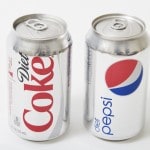
One of the most common phrases we hear our dental patients say is “I wish I would have taken better care of my teeth.” Helping kids enjoy healthier dental habits early on, will increase their chances of having a healthier smile.
Many instances we tell kids “brush and floss and don’t eat candy or you’re going to get cavities.” Sometimes, it’s hard to help children, who understandably see the world with a “here and now” vision.
Schedule Your Appointment Online!
Helping Kids Enjoy Healthy Dental Habits
As an effort to motivate children to take care of their teeth, you have to show through your own actions. If you realize the importance of preventative care today, the long term positive effects will be evident later on.
So while it is very important to teach our children about prevention and the consequences of not doing so, it can be equally as important to supplement that with positive reinforcement to help them learn to enjoy the preventative dental measures themselves.
If we can teach our children to actually enjoy healthy habits at a young age, instead of just using scare tactics to avoid unhealthy habits, they will certainly have a more solid foundation for a lifetime of choosing a healthy path.
Helping Kids Enjoy Healthy Dental Habit tips:
- Have an assortment of healthy and natural “treats” (carrot sticks, fruit pieces, etc) available.
- Allow the child to be part of the decision making process.
- Be a good role model in what your choices and habits are.
- Use fun dental hygiene products! Tooth Tunes toothbrushes are an excellent example. It plays music when the brush touches the teeth. Having fun while brushing positively reinforces the habit, whether they understand the concept of prevention or not.

